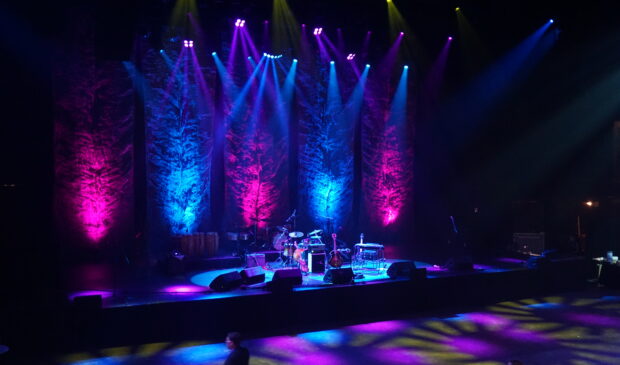
Tuesday, June 4, 2024 By Chad Swiatecki
The city is expected to introduce a new incentive program for small businesses such as grocery stores, child care centers and creative spaces to bring needed community benefits to underserved areas.
The Place-Based Enhancement Program, currently receiving community feedback, is a new initiative of the Department of Economic Development and is expected to be presented to City Council in July. A presentation at last month’s Arts Council meeting delves into how the program can provide financial assistance to dance studios, theater spaces and other arts and music uses that are facing increasing pressures due to high rents and development pressures across the city. risk,
Donald Jackson, EDD’s business process consultant, explained that aid will come primarily from property tax and sales tax rebates for new businesses or existing businesses that provide identified community benefits. The program will be a new way to use state-allowed financial incentives, which were last significantly reviewed and updated in 2018.
“Austin is unique in some ways in that we’re very focused on making sure our incentives are really high-level in approach, with very stringent community benefit requirements such as living wages, child care supports, green building requirements, transportation,” Jackson said. “Visiting, promoting local art and music and more. “The goal in this direction is to really focus on commercial affordability and affordable real estate for specific types of users and specific types of needs. “
Jackson said the program will likely prioritize small, local businesses with connections to the community in hopes of preventing their displacement. With a current vacancy rate of less than 3% in Austin’s overall commercial real estate market, assistance can take the form of rent subsidies or help fund repairs and capital improvements needed to strengthen the recipient business or organization.
Music venues and creative spaces may fall heavily into cultural preservation categories designated in program guidelines, Jackson said, and grocery stores or child care centers in food deserts may take space in new mixed-use projects because of tax rebates. Priority areas where place-based incentives could focus include established cultural districts, equitable transit-oriented development, areas with identified equity issues, and city-led redevelopment projects such as Colonial Park.
The committee praised the intent and structure of the plan and approved a recommendation in support of the council to include some clear targets or milestones in its guidelines.
“Hopefully when it’s presented, we can say this is what we want to see, particularly with our (artistic) interest in creative space and affordability, and the outcomes we’re looking for at certain milestones post-launch, Commissioner Heidi Schmalbach said.
Earlier in the meeting, the committee heard from leaders of three local dance companies who emphasized how much of an issue venue availability and affordability have become in their fight to stay afloat.
“Venue (space) is critical to us. Cost is a big factor for us at the moment. … There are so many costs, really not just the cost of venue rental, but what we pay as an organization All costs and all costs that our customers have to pay as well,” said managing director Ann McNair, a member of the Conspiracy Chorus.
“We are extremely fortunate to partner with many local churches. Baker College has been a great ally, but even within these spaces there is incredible competition for appointments. The Long Center is doing its best, but the reality is we can only We still have two or three pitches ahead of us in Dell Hall, and in order for us to have a thriving arts community in the long term, we need to continue to explore the venue space…and the financial considerations that impact us as artists and experiencers of art.
Photo by Michael Barera via Wikimedia Commons.
this Austin Monitor‘s work is made possible through donations from the community. While our reporting sometimes involves donors, we are careful to separate our business and editorial efforts while maintaining transparency. A full list of donors is available here and our code of ethics is explained here .
you are a community leader
We’re honored that you turn to us for serious, in-depth journalism. You know, a strong community requires local and dedicated watchdog reporting. We are here for you and that won’t change. Will you take a powerful next step and support our nonprofit journalism now?




